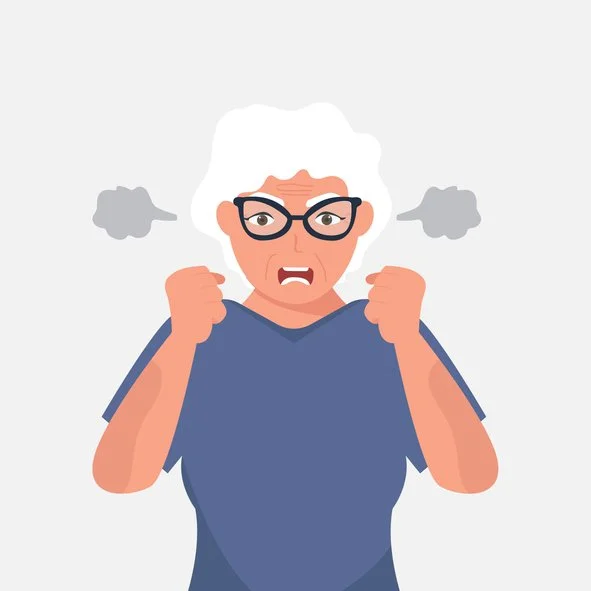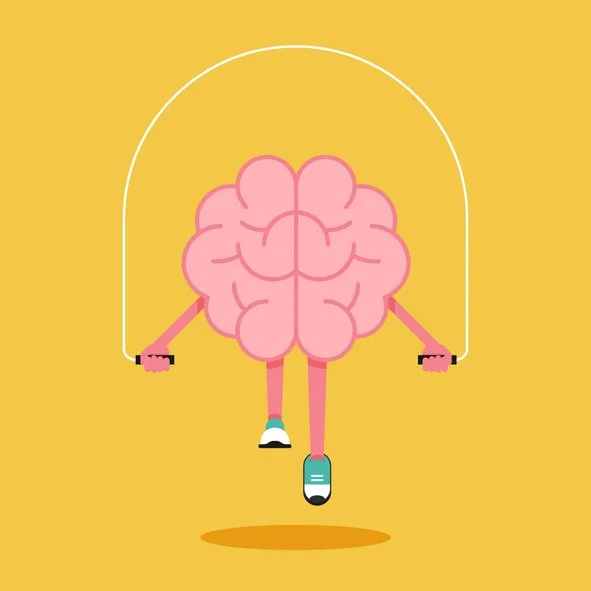From the desk of Rosemary Laird, MD
Founder of Navigating Aging Needs (NAN), LLC

Coping with Agitation
Alzheimer’s is a complicated disease. The symptoms we see in our loved ones reflect damage to different parts of their brain, including areas other than those involved with memory and thinking clearly. For example, areas that can also be compromised include those that control emotion, and those that are responsible for creating a person’s personality. This damage can result in unusual and unexplained feelings of fear and irritation in your loved one.

Brain Games
Examining the lives of nearly 2,000 people over decades, researchers from the Rush University Medical Center in Chicago found that people who engaged in regular, brain-enriching activities throughout their lives demonstrated less risk of cognitive impairment such as Alzheimer’s and dementia as they aged.

Redefining Alzheimer’s
As your NAN Navigator works with you every day to help manage your loved one’s disease, know that they are backed by a legion of scientists working to redefine Alzheimer's, and your efforts are critical to this ongoing effort.

Beyond Winning
As a caregiver of a loved one suffering from Alzheimer’s, all you can do is try your best, day in and day out. Like an Olympian, you do it for the “doing,” not for a medal or trophy. Knowing that you are there for your loved one, helping them out, is reward enough.

Get Cozy!
When cold weather strikes, the first thing you need to pay attention to is your physical health: Make sure you and your loved one have warm clothes, adequate heating, and foot protection against icy walkways.
But there is another aspect of dealing with the cold that is just as important, and that is keeping your mental health strong. And for that, I recommend that we all follow the lead of Scandinavians: After all, the people of Norway, Denmark, and Sweden know something about cold weather!

The Power of Resilience
As strong as you caregivers are, it is still essential to pause now and then, to check in with yourself and make sure your mind, body, and spirit are getting what you need to continue. That’s why we here at NAN share tools, guidance, and support to help you pause, take stock, and strengthen yourself for the road ahead. Resilience is a skill that is best learned and sustained with others, and it’s important to remember that we are part of your team.

Warning Sign
You know the feeling when a warning light appears on your car dashboard? It’s rarely convenient. You might hope it goes away. If you’re like me, you might keep driving because the car still seems to be working just fine—and you have somewhere to be.

Resolve To Be Less Resolute!
It’s the beginning of the year, and I’m seeing the usual crowds packing the gyms and classes at my local fitness center. But I know that fairly soon, the gyms will return to their typical levels of use.
That’s the way it is with New Year’s resolutions. Study after study shows that people’s optimistic pledges to dramatically change their lives through doing a fitness program, going on a diet, drinking less alcohol, or starting a new hobby typically don’t last very long. It’s just human nature.

The Greatest Gifts
All year, you have given your greatest gift―your love and devotion―to your loved one. And you’ve given us a great gift as well: allowing us to try to be as helpful as we can to you on your journey.

Quiet Down!
For a caregiver of a loved one suffering from Alzheimer’s, noise pollution is more than an annoyance. Alzheimer’s impairs the brain’s ability to process sensations, causing noises to blend in with each other and sow confusion. Loud noises also trigger the brain’s “fight or flight” response, which can lead to an agitated state in your loved one.

Celebrate Thanksgiving Every Day!
Caring for someone with Alzheimer’s can feel overwhelming — and gratitude may seem impossible when stress is all around. Yet research shows that cultivating gratitude can improve mental health, reduce anxiety and depression, and support better sleep and brain-health. Even during the hardest days, a gentle shift in mindset can help sustain hope, compassion, and emotional resilience. This piece offers realistic ways to bring gratitude into everyday life.

The Ultimate Comfort Food: A Family Meal!
If you are a caregiver of someone suffering from Alzheimer’s, there can be an added stress around mealtime that comes in multiple dimensions. You may find that your loved one has a reduced appetite, changing food preferences, perhaps even forgetting that they’ve eaten a meal or not being able to recognize a particular food. In the middle stages of the disease they often develop difficulty using utensils, and in the later stages, they may have trouble chewing or swallowing. All of this can contribute to dehydration and malnutrition for your loved one, and a lot of stress and concern for you.


Get Ready for the Holidays!
Sure enough, this week, before I’ve even polished off all the leftover Halloween candy (there are still a few pieces left!), decorations for the coming holiday season already seem to be popping up everywhere. These last two months of the calendar seem to be unnaturally squeezed into what seems like a mere few weeks.
Still, I always try to look at the positive side: To me, the decorations serve as a clear sign that it's time to start planning for a smooth and enjoyable holiday season. For a caregiver of a loved one suffering from Alzheimer’s disease, planning ahead is particularly important.

Change Is In the Air
For a caregiver of a loved one suffering from Alzheimer’s disease, change can carry a special burden. Alzheimer’s is a progressive disease, continually bringing with it new challenges and dimensions. You may also be going through changes yourself as you adjust to the new reality that the disease creates.

Coping with Wandering
As I thought about the celestial jolts that contribute to wandering, I found myself thinking about another form of wandering that can impact the safety of a loved one with Alzheimer's disease. Your loved one, perhaps feeling agitated, restless, and disoriented because of the progression of their disease, may suddenly walk out of the house and begin walking through the neighborhood. They may be triggered by memories of the past—thinking that they are going to work, for instance—or believe that they are searching for someone or something that is missing.

Frames of Mind
The author F. Scott Fitzgerald once observed that "the test of a first-rate intelligence is the ability to hold two opposed ideas in the mind at the same time and still retain the ability to function." It certainly seems true for this particular time in our lives. The world seems to be convulsed with conflicts between contentious ideas and behaviors, and nothing seems “normal.”
This can also be true of a caregiver of a loved one suffering from Alzheimer’s. As the disease progresses, your loved one may show signs of being in a mental state that conflicts with reality. You may face differences of viewpoints with your family, friends, and health providers on how to proceed on some issue that needs to be resolved.

Finding Your Balance
For a caregiver of a loved one suffering from Alzheimer’s, life can sometimes feel totally out of balance. There are day-to-day issues to take care of, the occasional crisis to handle, and the relentless progression of the disease to cope with.

Celebrating Caregivers on World Alzheimer's Day
One of my favorite days of the year is coming up. On September 21, communities around the world unite in a global effort to support those impacted by Alzheimer’s disease and other forms of memory loss. It’s a day to raise awareness, reduce stigma, and show support for the families and caregivers walking this journey.

The Present of the Past
In our world today, with its 24/7 news cycle and daily reports of strife, conflict, and chaos, it is often hard to pull your head out of the “present” and take a longer look to appreciate the passage and pages of time — events that make up a span of one’s life, that of those who have come before, and those who are following behind.

